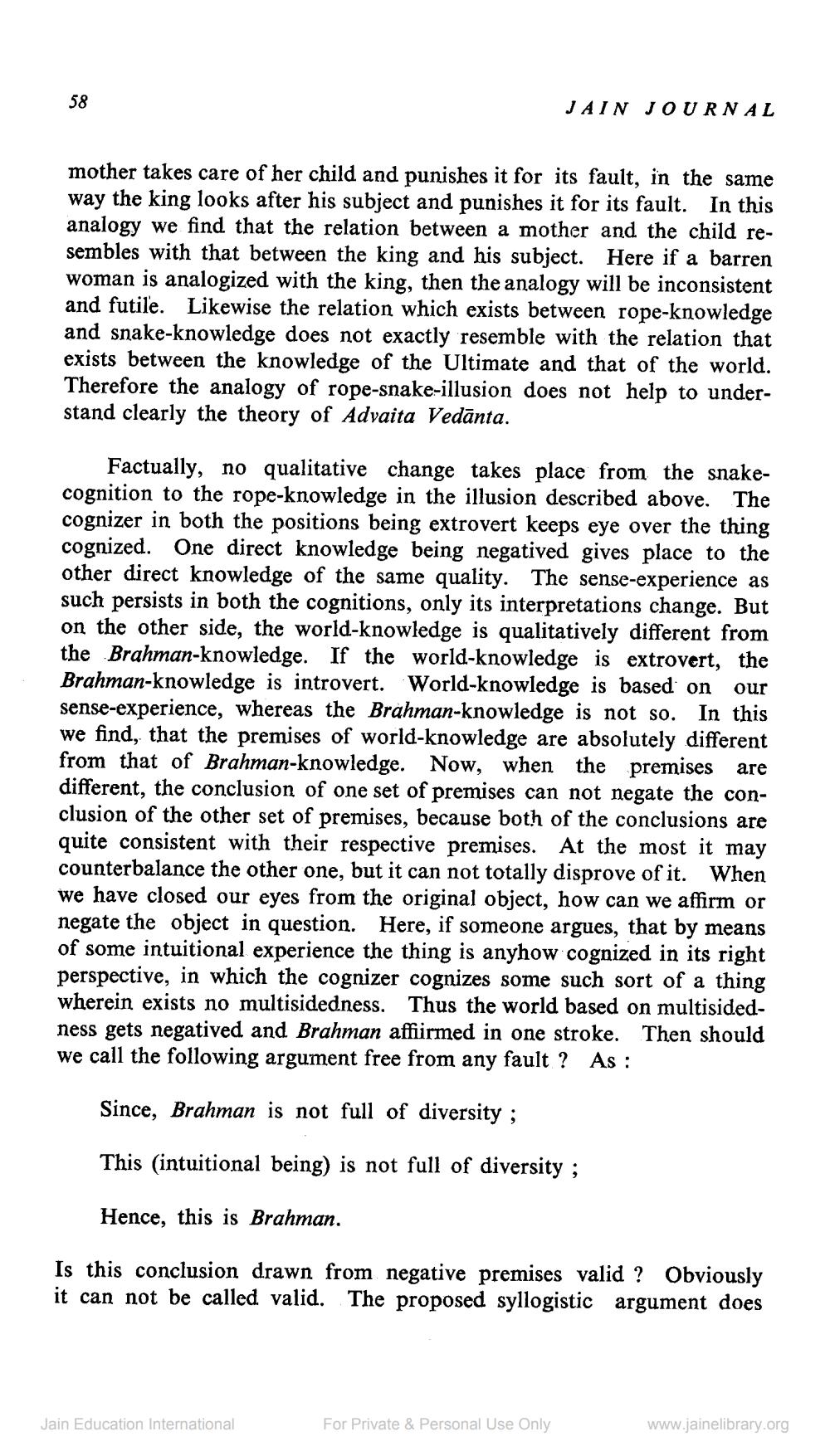________________
JAIN JOURNAL
mother takes care of her child and punishes it for its fault, in the same way the king looks after his subject and punishes it for its fault. In this analogy we find that the relation between a mother and the child resembles with that between the king and his subject. Here if a barren woman is analogized with the king, then the analogy will be inconsistent and futile. Likewise the relation which exists between rope-knowledge and snake-knowledge does not exactly resemble with the relation that exists between the knowledge of the Ultimate and that of the world. Therefore the analogy of rope-snake-illusion does not help to understand clearly the theory of Advaita Vedānta.
Factually, no qualitative change takes place from the snakecognition to the rope-knowledge in the illusion described above. The cognizer in both the positions being extrovert keeps eye over the thing cognized. One direct knowledge being negatived gives place to the other direct knowledge of the same quality. The sense-experience as such persists in both the cognitions, only its interpretations change. But on the other side, the world-knowledge is qualitatively different from the Brahman-knowledge. If the world knowledge is extrovert, the Brahman-knowledge is introvert. World-knowledge is based on our sense-experience, whereas the Brahman-knowledge is not so. In this we find, that the premises of world-knowledge are absolutely different from that of Brahman-knowledge. Now, when the premises are different, the conclusion of one set of premises can not negate the conclusion of the other set of premises, because both of the conclusions are quite consistent with their respective premises. At the most it may counterbalance the other one, but it can not totally disprove of it. When we have closed our eyes from the original object, how can we affirm or negate the object in question. Here, if someone argues, that by means of some intuitional experience the thing is anyhow cognized in its right perspective, in which the cognizer cognizes some such sort of a thing wherein exists no multisidedness. Thus the world based on multisidedness gets negatived and Brahman affiirmed in one stroke. Then should we call the following argument free from any fault? As :
Since, Brahman is not full of diversity ;
This (intuitional being) is not full of diversity ;
Hence, this is Brahman.
Is this conclusion drawn from negative premises valid ? Obviously it can not be called valid. The proposed syllogistic argument does
Jain Education International
For Private & Personal Use Only
www.jainelibrary.org




